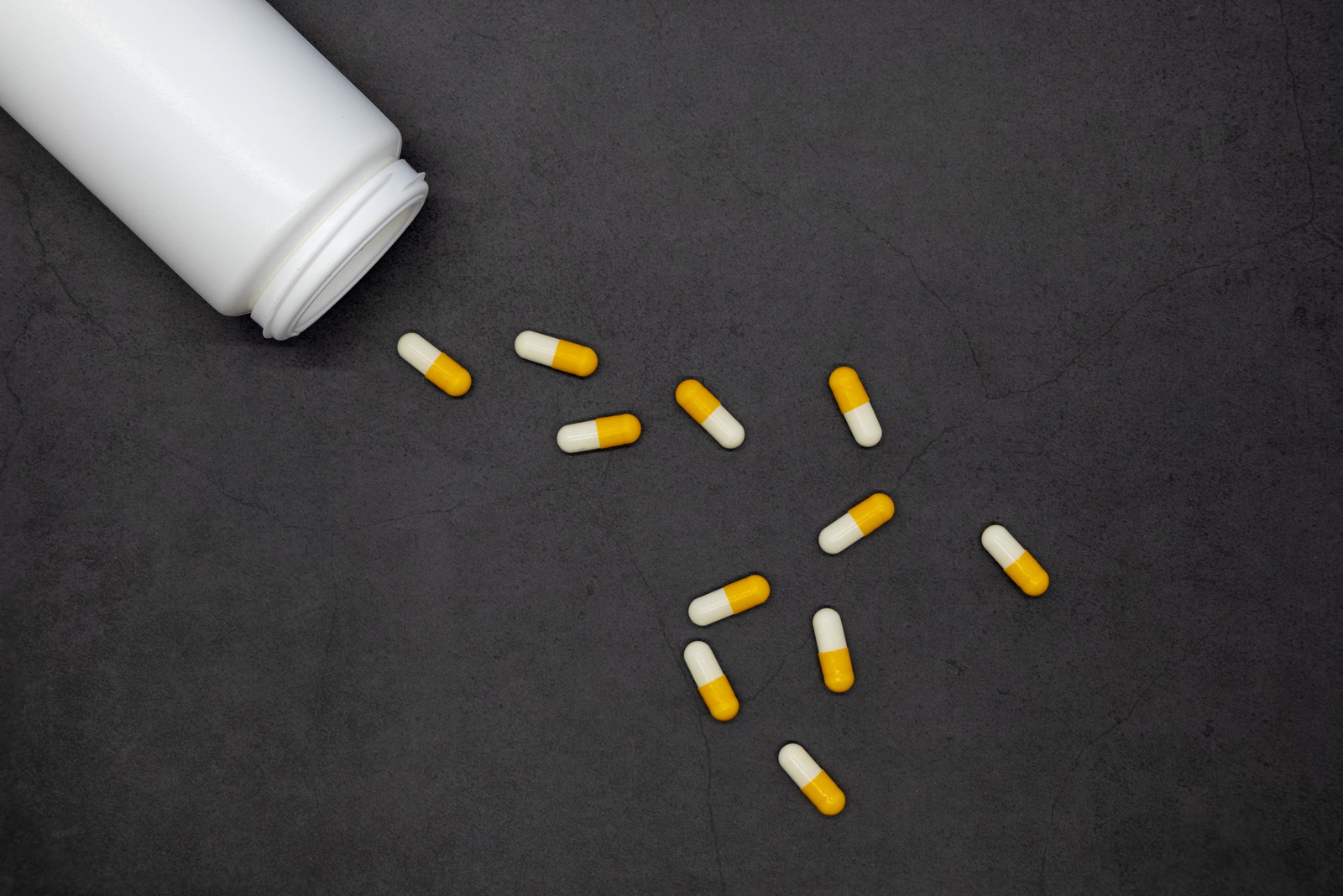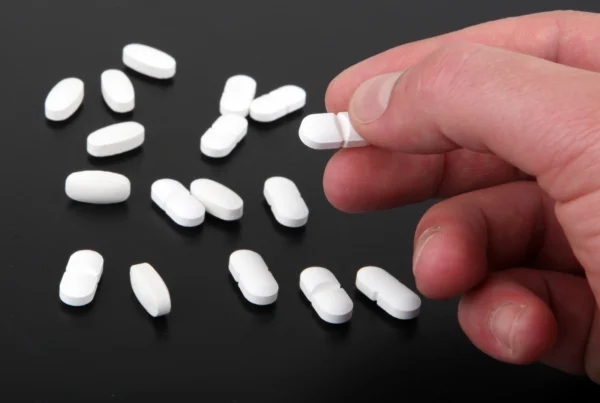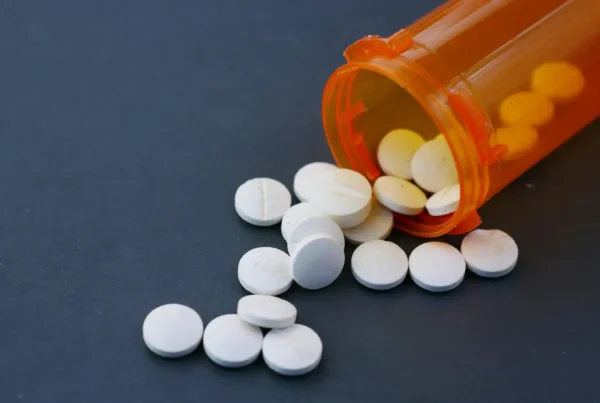
Table of Contents
Many people have heard of methadone as a means of dealing with the intense cravings and withdrawal symptoms that can come with getting off a drug and returning to normal life.
Suboxone® is less well-known but can still have an important role to play in addiction recovery.
Unfortunately, like many of the medications that can be used in addiction recovery or that can make a recovery easier and more manageable, suboxone can be addictive itself and can cause other complications for the people taking it. The risks are different, but they exist.
Here’s what you need to know about Suboxone®, what it is, how it works, how long it stays in your system, and more. We’ll even answer some common questions about suboxone use along the way.
Let’s dig in.
What Is Suboxone®?
Suboxone® is the name of a combination of two drugs, [1] buprenorphine (an opioid pain medication) and naloxone (an opioid overdose rescue medication). That might seem strange, but the two medications are combined intentionally.
Suboxone® provides pain relief and some of the high feelings that can come from opioid medication. However, suboxone also caps the amount of that feeling. Additionally, Suboxone® introduces a limiter that changes the medication’s impact and reduces the risk of addiction to that medication.
There are a few reasons to use the combination, though helping patients deal with addiction is one of the main reasons suboxone is prescribed today.
However, Suboxone® is still a schedule 3 drug,[2] which means there is still some risk of abuse and even addiction while using this medication.
How Is Suboxone® Used?
If there is still an addiction risk, why use Suboxone® in the first place?
Well, there are a few reasons why you and your doctor might decide that Suboxone® is a good option if you are dealing with and trying to overcome an addiction.
For one thing, suboxone use can make withdrawal symptoms much more bearable. This is important because withdrawal symptoms are often the primary reason people relapse out of recovery, putting addicts at higher risk of an overdose if they start using again.
Suboxone® can also be helpful for medically vulnerable patients and patients who want to recover but whose bodies can’t handle the stress of full-blown withdrawal without some time to rest and recover.
In some cases, Suboxone® or other anti-addiction medications may be prescribed long-term for patients who struggle with withdrawal or have protracted withdrawal symptoms that don’t seem to improve with time. These patients might be well served by attempting to go off suboxone at some point when they’ve had more chance to recover. Conversely, they might be better off taking Suboxone® long-term and not stopping the medication.
Every case is different, and there are many different reasons why addiction treatment plans might include Suboxone® or exclude it, depending on patient circumstances.
What Does Suboxone® Do?
Suboxone® works by providing an opioid, satisfying the dependence opioid addicts have by giving their bodies the chemicals they need, but also blocking the effect of the opioid medication. Some patients still report some pain relief and euphoria while taking Suboxone®, while others report not feeling the normal effects of an opioid medication at all.
The main goal of Suboxone® is to avoid at least some of the discomfort of withdrawal while also preventing people from feeling the side effects like the euphoria that can cause addiction to opioids in the first place.
While Suboxone® is an effective part of some treatment plans, not all patients benefit. Some patients want to try and stop using opioid drugs without using Suboxone® or are worried that they might shift their addiction from one drug to another.
If you’re concerned about using Suboxone®, that’s a valid concern and one you should bring up with your doctors and care team if they suggest it.
How Long Does Suboxone® Stay In Your System?
A dose of Suboxone® is designed to stay in your system for about 24 hours. However, some people may metabolize the drug differently, especially if they have liver or kidney damage from their previous addiction.
In some cases, during the early phases of treatment, you may be given suboxone more than once a day, depending on the severity and symptoms of your addiction.
Suboxone® is detectible in your body and will show up on drug tests, usually for 5-8 days after you take it, depending on metabolism, overall health, and the drug’s half-life. Your doctor may warn you if they suspect that Suboxone® may be detectible in your body for longer than average and may also adjust your dose to account for the longer duration in your case.
Are You Really In Recovery If You’re Using Suboxone®?
One of the most common myths about Suboxone® [3] is that you aren’t in recovery if you’re using a drug like Suboxone® to control your withdrawal symptoms and make a recovery a little easier.
The truth is that recovery looks a little different for everyone. If you think you’re in recovery while using Suboxone®, you are right. As long as Suboxone® is the only drug you use, or you only use Suboxone® and other non-intoxicating medications, you’re in recovery.
If you think you’re in a pre-recovery phase, not completely sober, that’s fair too.
No one’s experience is the same, and as long as you aren’t abusing the drugs you take, are communicating with your prescriber about your suboxone use, and are willing to stop taking the drug when they think you’re ready, you’re probably well on your way to an addiction-free life.
Can You Overdose On Suboxone®?
Another common misconception about Suboxone® is that it’s impossible to overdose. Unfortunately, the truth is a little more complicated than that.
Naloxone® is an overdose rescue medication. It works by stopping the action of an opioid and thereby preventing further damage or an escalation in overdose symptoms. It stops the high and pulls you completely out of whatever state the drug you were taking put you in.
That said, Naloxone isn’t foolproof, and if it were 100% eliminating the effectiveness of the opioid medication included in Suboxone®, the medication wouldn’t work to help with addiction recovery. The amount of Naloxone® in Suboxone® is slightly less than is needed to counteract the opioid completely.
That means that, theoretically, you can overdose on this medication. It isn’t easy to do. Also, having two drugs with opposite effects working in your body simultaneously isn’t necessarily great for your body. Remember, both drugs still have to be filtered out of your body, which can be damaging and may take a lot longer if you have pre-existing damage to your liver or kidneys, which many recovering addicts do.
Taking more Suboxone® than prescribed probably won’t make you feel much better, may slow your recovery, and puts you at risk of an overdose or other serious consequences.
Unfortunately, if you’re tempted to take more Suboxone® than prescribed, you might not be recovering and might have an addiction to suboxone. Addiction to Suboxone® is rare, but it can and does happen, and not all people benefit from having an addiction treatment medication like Suboxone® available.
If you feel like you might be dealing with a new addiction, trust your instincts and talk to your doctor. After all, if you’re using Suboxone® for addiction treatment, you already know what addiction feels like, and, most likely, you’ve already decided you want to be free of it.
Side Effects And Risks Of Using Suboxone®
While Suboxone® can be useful in many instances, it still has some important side effects and risks. Here are some common side effects. [4]
If you have any of these side effects, you must talk to your doctor about them as soon as possible and seek medical attention if they are severe.
- Dizziness
- Drowsiness
- Withdrawal symptoms
- Tongue pain
- Nausea
- Vomiting
- Constipation
- Headache
- Back pain
- Fast heart rate
- Insomnia
Other severe side effects can occur, especially if you already have liver or kidney disease or are taking a medication that increases the amount of serotonin in your body, like an anti-depressant.
Any severe symptoms, even expected ones, should be reported to your doctor as soon as possible and monitored in case they require medical attention.
Worried About Suboxone® Addiction? We Can Help.
If you’re trying to overcome addiction but worried that Suboxone has replaced the other drugs you’re addicted to, we get it. It can be hard to get sober and overcome the lasting effects of addiction; sometimes, the tools we have to help can get in the way too.
But that doesn’t have to be the end of your story, even if other addiction treatment programs haven’t been effective for you in the past.
Ocean Recovery’s holistic approach to addiction treatment includes all aspects of your health and history. It uses a variety of therapeutic approaches to help you overcome addiction and deal with any underlying causes that contributed to your addiction in the first place.
It’s not just about getting better right now. It’s about long-term healing and growth so you can truly live the addiction-free life you’ve been fighting for.
Get addiction help today. We can’t wait to be there for you.
Sources:
- Brewer A. Medical News Today. (2022, December 5). Suboxone: side effects, dosage, use for dependence, and more. Retrieved from https://www.medicalnewstoday.com/articles/325827 on 2023, January 8
- U.S. Department of Justice. Diversion Control Division. (n.d.). Controlled substance schedules. Retrieved from https://www.deadiversion.usdoj.gov/schedules/ on 2023, January 8
- Grinspoon P. Harvard Health. (2018, March 20). 5 myths about using suboxone to treat opiate addiction. Retrieved from https://www.health.harvard.edu/blog/5-myths-about-using-suboxone-to-treat-opiate-addiction-2018032014496 on 2023, January 8
- Drugs.com. (2022, August 1). Suboxone uses, dosage, side effects & warnings. Retrieved from https://www.drugs.com/suboxone.html on 2023, January 8






